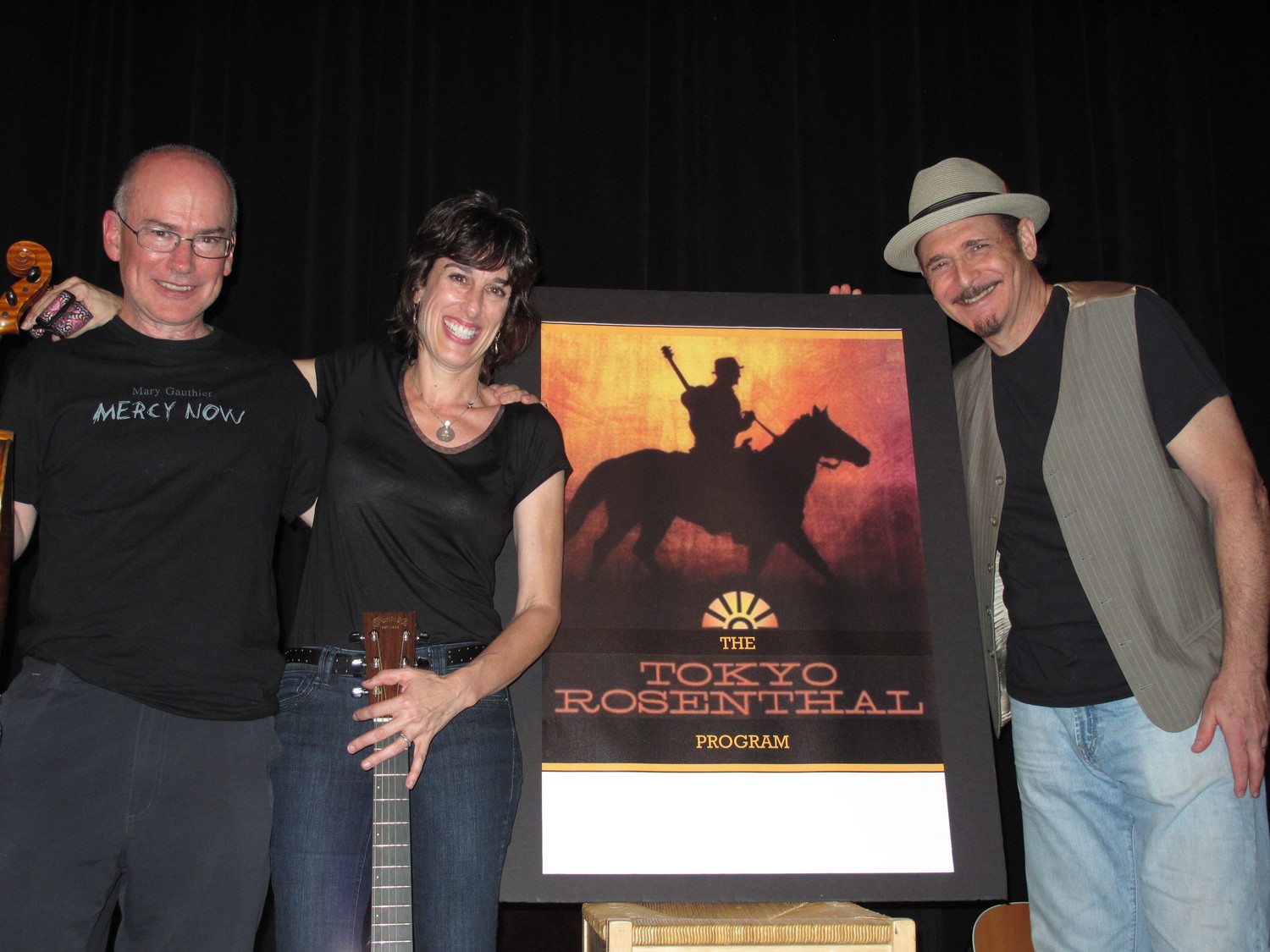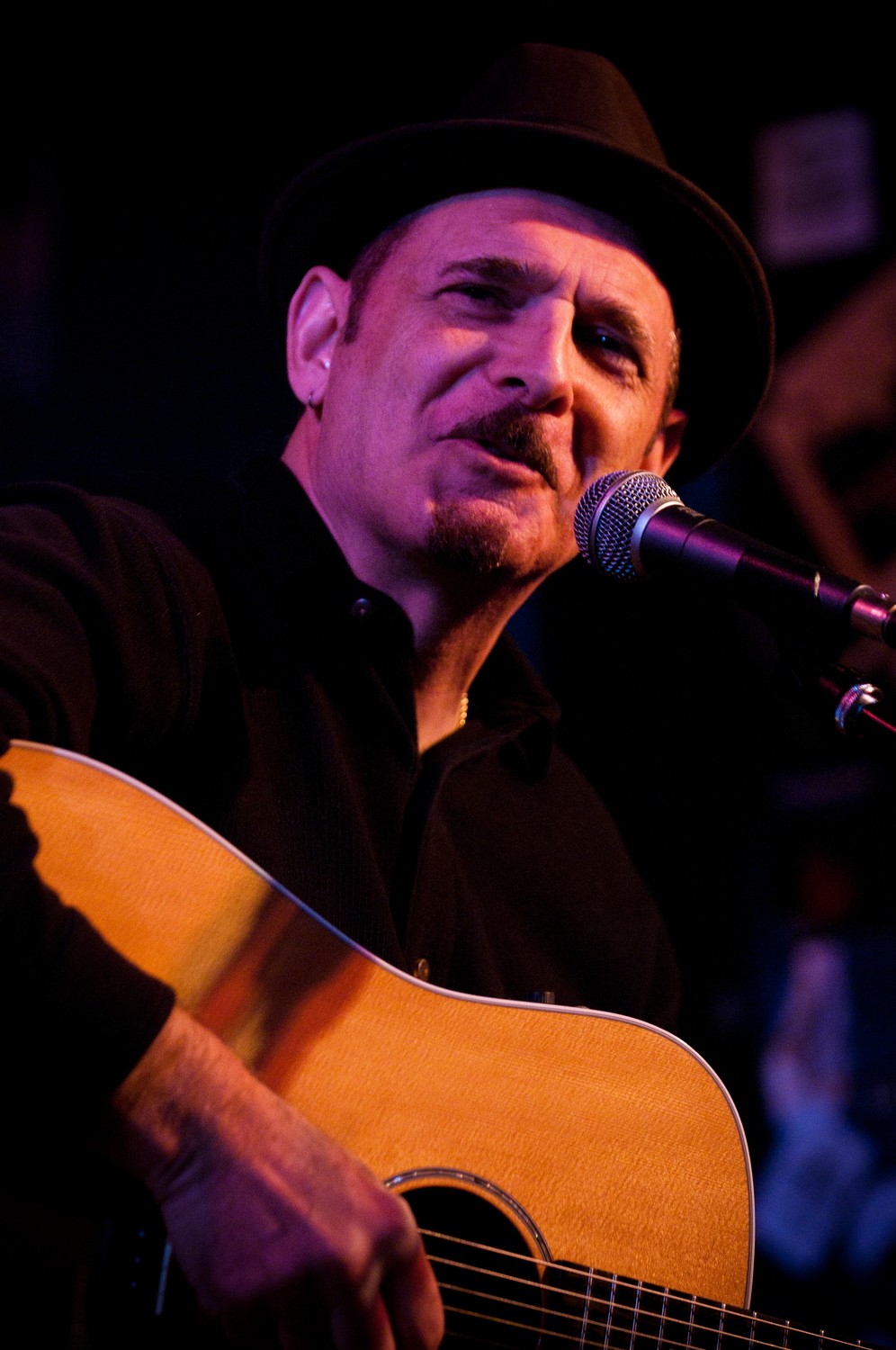Valley Stream’s Tokyo Rosenthal returns with new book
Journalists meet a number of people with unusual backgrounds. An author isn’t necessarily just an author. He might also be a singer and songwriter. Or perhaps he’s a cable TV executive. He might be a boxer or fight promoter. Or he might be all of those. If that’s the case, then you’ve probably met Arnie “Tokyo” Rosenthal.
The Valley Stream native spoke at Turn of the Corkscrew in Rockville Centre on Jan. 29, promoting his most recent book, “Our Last Seder.” The book chronicles a family tragedy that happened when Rosenthal was 10 — and was traumatic enough that the family almost unraveled in
its wake.
Rosenthal had always been reluctant to reveal details of the tragedy with the media because of its devastating impact on his family. But the time had come, he said.
The book’s title refers to the last time his extended family came together, celebrating Passover with the traditional family meal, or Seder. Sometime between the meal’s end and the following afternoon, Rosenthal became aware of whispered conversations. He knew a house had burned in the neighborhood because of the sirens and the lingering odor a large fire leaves in the air. “I didn’t see my cousins, who were the same age as my brother and me — 10 and 7 — but I didn’t connect the two things,” he said.
The fire started at 1 a.m. on a Sunday. Because Jewish religious law requires burial of the dead within 24 hours of their passing, “my parents went out late that same night. I didn’t know where they’d gone or why,” he said, “and I didn’t figure it out until much later.” His family wasn’t strictly observant, he said, “but weren’t the kind of people who only went on the High Holy Days, either.”
Rosenthal learned part of what happened the following afternoon. Immediately after the funeral, which the boys had not attended, they were sent to stay with a family friend in East Rockaway. There, one of the boys in the neighborhood showed Rosenthal an account in the afternoon paper of a house fire in which two children had died. They were his cousins. The article told of the family’s maid fleeing by jumping out a window, breaking both legs in the fall, but gave few details about the fire.
For years afterward, that was all he knew about the tragedy. He said he still isn’t sure what caused the fire. “Nobody talked about it,” he said. “For 40 years, nobody said anything. It was like my mother completely blacked it out.”
How did he process the loss? “Ten-year-olds don’t sit still anyway, and anyway, I couldn’t,” he said. “I’d listen to the radio, run around — I was always in motion.
“Look,” Rosenthal continued, “in those days we didn’t have therapy for 10-year-olds.” A year after the fire, when he was in sixth grade, a classmate told the whole story in class. “I beat him up after school,” he said.
Rosenthal conceded that this might not have been the most auspicious beginning to a boxing career, but it did provide him with the nickname that has stuck ever since.
“Every boxer has to have a moniker — a nickname,” he explained. It was the late ’60s, and the memory of the Second World War was still part of popular culture. “I was looking around, and there was Sugar Ray Robinson and the Raging Bull [Jake LaMotta] and [Ruben] Hurricane Carter – great nicknames!” Rosenthal and his manager got together to brainstorm and remembered the legendary Tokyo Rose, in reality a number of different women who broadcast Japanese propaganda to Allied troops during World War II. Tokyo Rosenthal was born.
The nickname lasted longer than the boxing career. His friends still call him Tokyo, or just Toke. Rosenthal hung up his gloves after amassing a 1-1 record, and then turned to fight promoting.
Although the events of his childhood continued to haunt him, the ’60s and ’70s were turbulent enough that his personal trauma could be subsumed in the day’s events. “I remember Kent State and the assassinations of ’68,” he said, referring to the shootings of four college students at Kent State University in Ohio in the spring of 1970, and the murders of the Rev. Dr. Martin Luther King Jr. and Robert F. Kennedy in April and June of 1968.
Rosenthal worked as a boxing promoter, but meanwhile, he became interested in the fledgling cable news industry. Ted Turner founded CNN as an alternative to the Big Three networks in 1980, and Rosenthal worked in the sports division of a cable news network called FNN. This brought him into contact with musicians, who encouraged him to pursue a career himself. FNN was sold to an up-and-coming ESPN in the early 1990s, and Rosenthal became a free agent.
About this time, his aunt’s second husband died. “We’d stayed in touch, definitely closer than I was with my mom,” Rosenthal said. “After the service, she led me over to two headstones and showed me where my cousins were buried. I don’t think I really got it until that moment.” For years, Rosenthal had suffered from PTSD because of the event, he said. “Standing there, everything came back.”
The tragedy has cast a shadow over his life and that of his family, Rosenthal said, but “I’ve had fun. I’ve done a bunch of different things, traveled, played music all over the world –– including Tokyo,” he said with a laugh. “And I’m very big in Edmonton.”
Asked how the book is doing, he said sales have been steady. “There’s really only one chain of bookstores left,” he said, so his promotions and book signings have taken him from one Barnes & Noble to another. He’s also done what he calls “the Southern temple tour” of synagogues in the South. Rosenthal currently lives in Chapel Hill, N.C.
The childhood trauma has brought him nearer to his faith, he said, though not to his family. “My mother still doesn’t talk about it, and it’s been 50 years.” He has two daughters, ages 33 and 29. The younger daughter made her bat mitzvah, and “her training opened up the door for us finally to have another Seder.” Since then, they have celebrated the holidays together whenever possible.
Rosenthal maintains a full schedule. “The book is in play for a movie deal,” he said, although it was too early in the process to say more than that. He is also in the early stages of another book — his fourth, set during his college years. “I like writing,” he said. “I’m not Steinbeck, but I enjoy the process.” The new book will give him a chance to remember the late ’60s and early ’70s, as well as exploring the events around the fire that still remain unclear. And he will continue to perform. With seven albums to date of what he calls “Americana,” it’s doubtful that Tokyo will be retiring soon.









